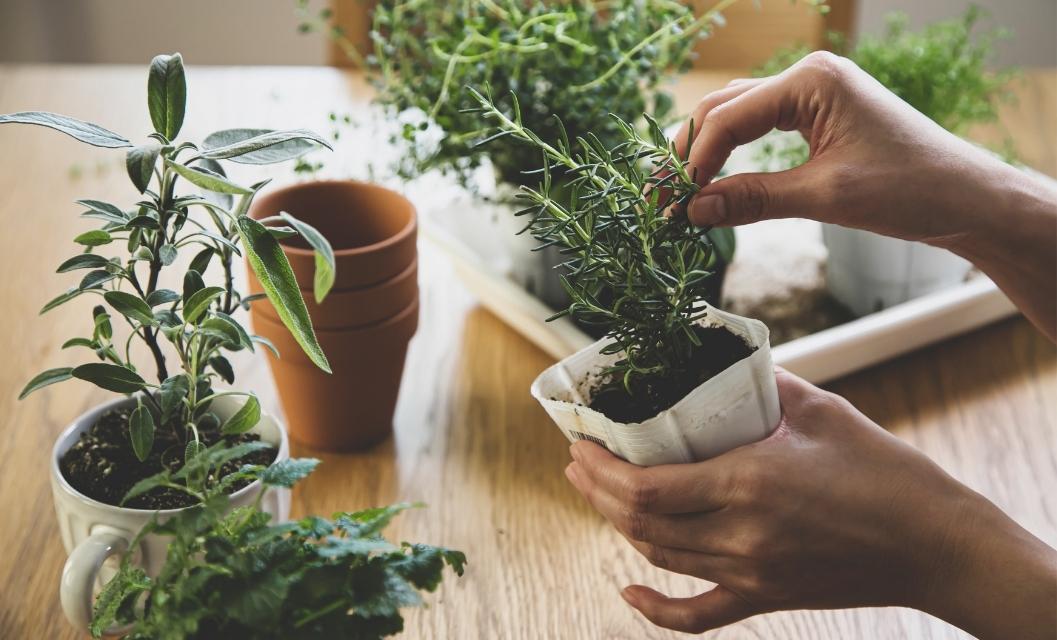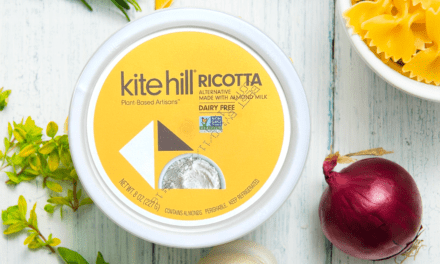Would you like to enjoy fresh herbs without buying them at the grocery store? There are many benefits to growing your own indoor herb garden. From saving money to improving your health to getting great-tasting food, there are plenty of reasons why people grow herb gardens. Let’s look at the benefits of growing an indoor herb garden.
1. Cut back on your grocery bill.
With inflation rearing its ugly head, who isn’t focused on saving at the supermarket? Fresh herbs from the grocery store can be expensive, especially when you consider how little you get for the price. If you cook regularly with fresh herbs, growing your own is an easy way to save money. Not only will an indoor herb garden cut down on your grocery bill, but it also gives you a constant supply of fresh herbs right at your fingertips.
If you have a sunny window in your kitchen, put a plant there and keep it within easy reach on the countertop or table. Taking care of indoor plants is not as difficult as it sounds–especially if you stick with foolproof varieties like basil and oregano–and soon enough, you will have all the fresh herbs you need right in your kitchen!
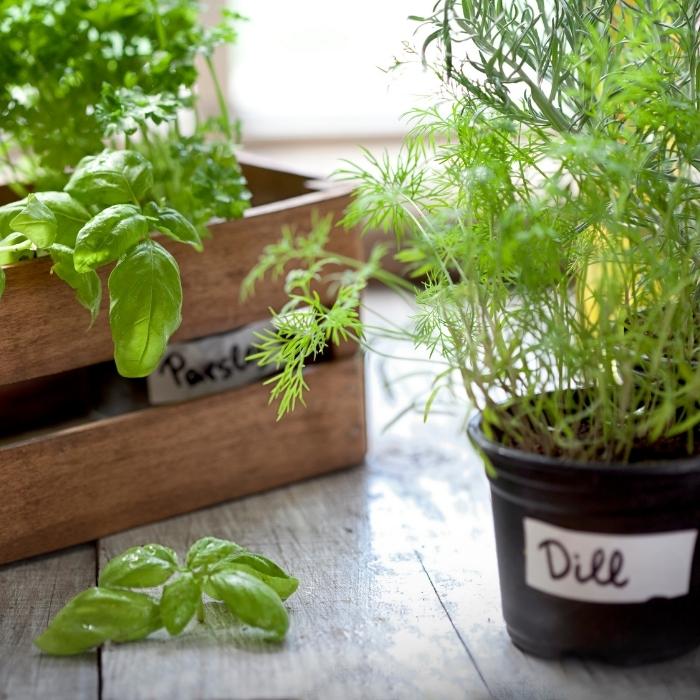
Put fresh herbs in a sunny window or a kitchen countertop within easy reach.
2. There are many uses for homegrown herbs.
When choosing which herbs to grow in your indoor garden, think about what kinds of recipes you plan on making with them. If most of your cooking involves Italian flavors, basil and rosemary will be excellent additions to any meal. If Mexican food is more up your alley, look into cilantro or chives instead.
Cooking with fresh herbs can be a great way to experiment with new and exotic flavor combinations. Although it is possible to use dried herbs for cooking, being able to snip fresh herbs right before adding them will make all the difference in flavor and scent. These aromas and flavors add depth and character to dishes. Best of all, they don’t require any advanced equipment or training–just a little water and some sun! You can even grow herbs hydroponically indoors, so you don’t have to worry about soil-borne pests or diseases ruining your crop.
You can also use herbs for other purposes. For example, lavender makes a soothing tea and smells amazing when you add it to homemade body scrubs or soaps. You can crush mint into water for refreshing beverages or use it in facial cleansers and toners (as long as it doesn’t irritate sensitive skin).
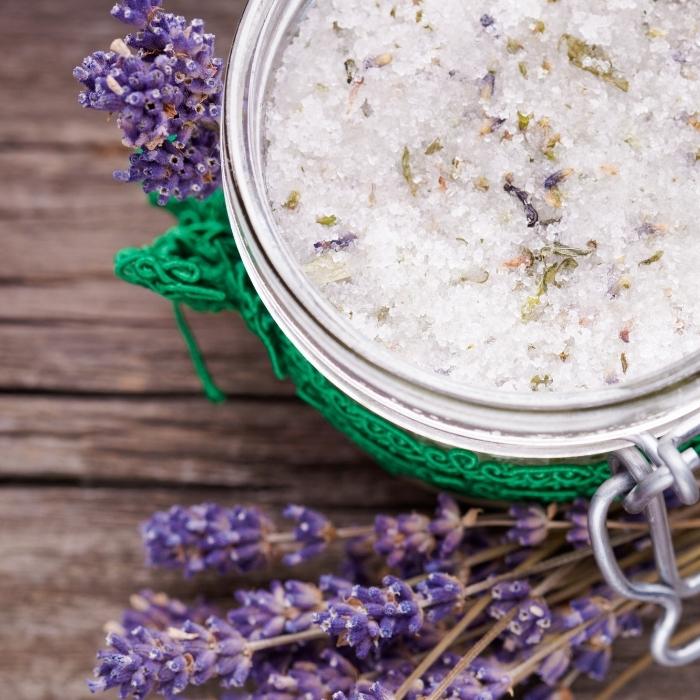
You can make a tea or homemade body scrub with herbs like lavender and mint.
3. Herbs are easy to grow.
Now that you’re an expert on the benefits of growing herbs indoors, it’s time to learn how to care for your plants. Fortunately, most herbs are easy to grow and maintain. They don’t require a lot of space and can generally grow in a wide range of soils. Some additional considerations include choosing the right herb and making sure your plant gets enough light.
The best herbs for indoor growing are parsley, thyme, basil, rosemary, and oregano. If you’re new to indoor herb gardening or not sure how to get started, these are excellent choices because they’re easy-care plants with lots of useful culinary purposes–think salad garnishes, delicious marinades, sauces, and even tasty teas! For an easy way to grow herbs or veggies indoors, check out the Gardyn 2.0. It’s an advanced indoor vertical garden system that allows you to grow up to 30 plants in just 2 square feet!
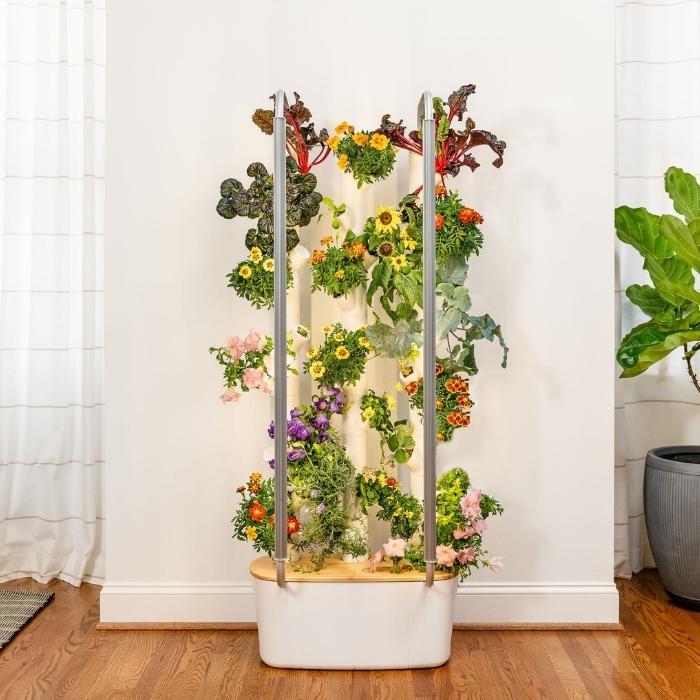
The Gardyn indoor vertical garden system is AI-powered and dirtless.
4. An indoor garden can help freshen the air in your home.
Most plants absorb carbon dioxide in their surroundings and convert it into oxygen. Having an indoor herb garden with these types of plants can help increase the amount of oxygen in your home. Some plants, like bamboo palm and ferns, also remove toxins from the air.
Indoor toxins include formaldehyde, ammonia, benzene, and other harmful contaminants that come from common household items like latex paint and carpeting. Plants can reduce mold, bacteria, trichloroethylene (a chemical found in dry cleaning solutions), and xylene (a chemical found in paints). Studies also show that plants help reduce stress by bringing nature indoors.
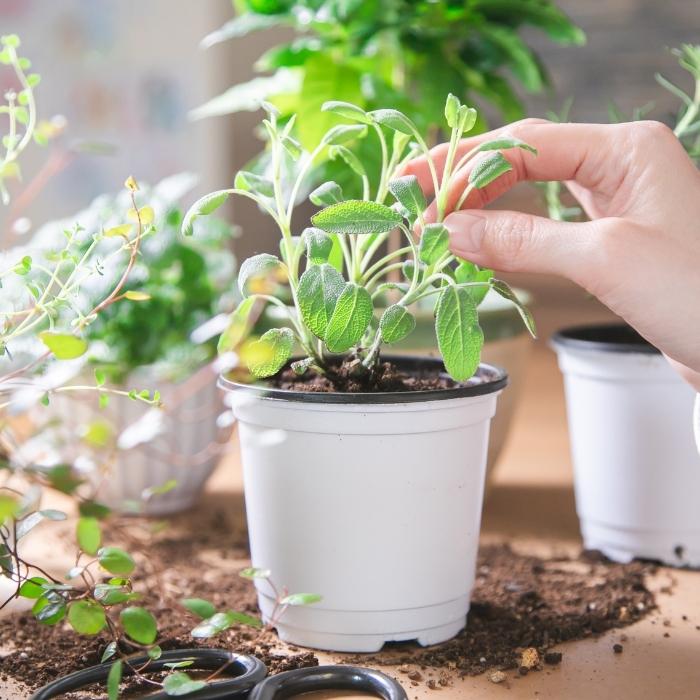
An indoor herb garden can help freshen the air in your home.
5. Add beauty and color to any room.
Herbs make the perfect plants for an indoor garden because they’re easy to grow, require small amounts of sunlight, and can thrive in small pots. Basil, thyme, parsley, mint, oregano, rosemary, and tarragon are all herbs that do well in a kitchen or other indoor setting. Herbs also offer various colors and textures that can add visual interest to your home.
Keep herbs in a sunny window or use grow lights if you don’t have enough natural light coming into your kitchen or living space to keep your herbs flourishing. The best part is they look great on any kitchen counter or coffee table as a centerpiece!
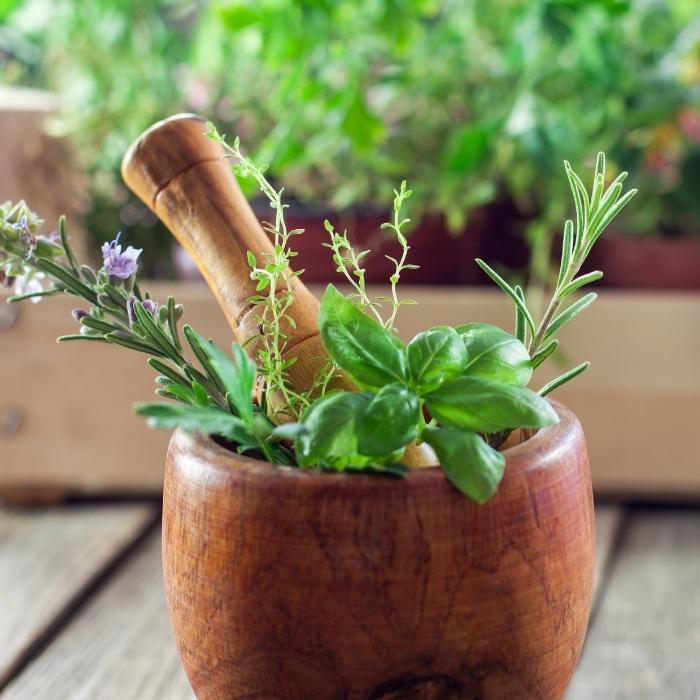
Fresh herbs look great on any kitchen counter or coffee table.
6. An herb garden can be a conversation piece.
Start conversations about your herb garden with friends and family. Tell them about your new hobby and invite them to help you get started. Propagate a new plant for a friend to help them start an herb garden, too.
An herb garden can also be a community project–you can share the work with other people in your household or building and share the herbs once they are ready to be used. You could even make it a monthly activity with friends: If you all decide to grow different herbs, you can trade plants at each get-together.
7. Herbs can improve the way you live.
Apart from their attractiveness, growing your own herbs is a great way to improve your living conditions. Whether you’re looking to upgrade your culinary game, live more sustainably, or seek natural remedies for physical problems, there’s an herb for you. Some herbs are purported to have medicinal properties, so growing an indoor herb garden is like having a pharmacy in your kitchen. Do your research, though. Make sure the herbs you use are safe, effective (based on numerous studies), and won’t interact with any medications or supplements you’re taking.
The Bottom Line
You can have fresh herbs all year long with an indoor herb garden. It doesn’t take up a lot of room, and when you combine it with other indoor plants, it looks beautiful. It’s a great way to live smarter and help the environment at the same time.

